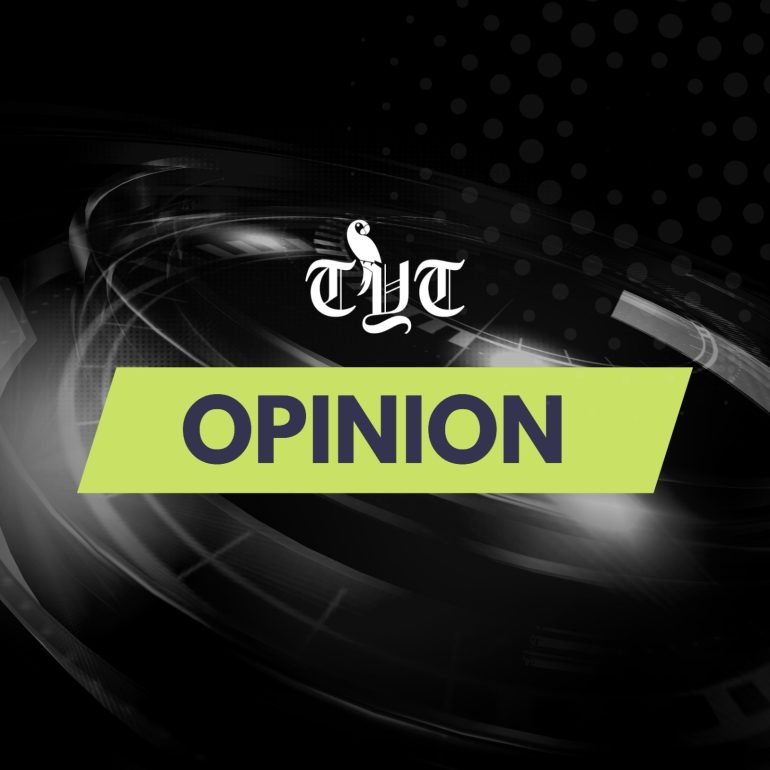September 03, 2025
By Adejumo David Adebayo
Daniel Bwala, President Tinubu’s Special Advisor on Policy Communication, recently made a widely shared interview on Arise News. In an attempt to defend Tinubu’s Federal Government’s focus on Lagos’ projects in the face of opposition figures, especially those from Northern Nigeria, some of whom are also APC members, made an own-goal error by labelling Lagos “No man’s land.” Although it is true that Lagos State is cosmopolitan, Lagos is never a no man’s land because it is home to people from all ethnic backgrounds and a large number of international immigrants. It is therefore a microcosm of Pan Nigerianism.
The concept of No Man’s Land is a disputed territory between two peoples, nations, or states.
Lagos’s indigenous population, which is primarily Awori and Ijebu, as well as others like Gun and Egba/Egbado, who later settled and assimilated into the Awori/Ijebu aborigines who received them, is the cornerstone of cosmopolitan Lagos.
Even the New World nations of the United States, Canada, and Australia—whose indigenous inhabitants were on the verge of extinction—are never referred to as “No Man’s Land.”
Lagos isn’t a disputed territory because its ownership is established and uncontested (No Man’s Land). The Federal Government must prioritise the development of Lagos’ infrastructure for a number of specific reasons, none of which are related to the idea of non-man’s land.
- Cosmopolitanism
For example, because Lagos’ population is made up of all Nigerians, including foreigners, its infrastructure benefits all Nigerians, including foreigners, who live and work there rather than just Lagos natives. This is in contrast to other states, such as other South-West states, where even fewer Nigerians would enjoy it because they are less cosmopolitan than Lagos.
- Population
Lagos is susceptible to infrastructural deficiencies and deterioration due to its population, although even better infrastructure there will assist almost 10% of Nigeria’s entire population. Given that over 10% of Nigerians reside in Lagos, a significant portion of the country’s population is impacted when Lagos’ infrastructure deteriorates. Lagos has Nigeria’s highest population density, is the country’s smallest landmass, is coastal, and is vulnerable to flooding and climate change.
Lagos is in a terrible predicament since there are more people per square metre there than in any other Nigerian state.
- Economic Standpoint ( Return on Investment)
Nigeria’s economic powerhouse is Lagos. Lagos is home to Nigeria’s manufacturing, service, and maritime industries, and its GDP accounts for more than 30% of the country’s overall GDP. It also contributes significantly to Nigeria’s non-oil revenue and GDP. Investments in Lagos promise faster and larger returns, increasing the amount of money that other Nigerian states share.
Perhaps the focus should have been on Ile-Ife, the ancestral cradle of the Yorùbá people, but the Federal Government’s investment in Lagos has nothing to do with Yoruba-centrism or nepotistic policy; rather, it is an economic decision, as any responsible businessman would make.
The wealthiest Black man did not establish his oil refinery in his hometown of Kano, despite the fact that Dangote is not Yorùbá and has no verifiable Yorùbá ancestry.
And why? Commercial viability, ROI, and market accessibility. Due to its benefits, which transcend ethnicity, Lagos is a preferred destination for investments.
Nigeria is a low-income nation with limited resources that can be used to fund infrastructure throughout the nation.
These limited resources are allocated to states or regions where a return on investment is assured, including Abuja.
The #700B investment on MMIA, the Lagos-Calabar Coastal Highway, which prioritises the Lagos portion since it will be tolled first, the Green Railway Project, and other recent Federal Government spending in Lagos all have a return on investment perspective. Why would an Iragbiji man invest in Lagos from a nepotistic perspective, given the rumours that even President Tinubu is from Iragbiji in Ọṣun State? Lagos’ success and failure have a multiplier impact on Nigeria, particularly given the terrible circumstances in which all of Nigeria’s states—aside from Lagos—are worse off and lack stronger governance.
The incompetence and poor governance of other Nigerian states burden Lagos. The author is from Ọṣun State. If I had to select between the Lagos-Ogun-Òyó Railway and the Ondo-Ọṣun-Èkìtì Railway based on traffic and return on investment, which would I do?
Without a doubt, I’ll go with the former.
Northern Nigerians are morally unjustified in their criticism of the so-called Lagosification of FG projects.
No inherited FG projects in Northern Nigeria have been shelved for Lagos; in fact, new ones, like the Sokoto-Badagry Super Highway, have begun.
Multi Billion Dollar Projects like Railway to Maradi were prioritized by Last Administration instead of the Extended Lagos – Ibadan railway that makes greater Economic sense, AKK Gas Pipeline Project, Sustained, Wasteful and Unending War against Terrorism and Insurgency are all Ongoing.
Lagos, Ogun, and Ondo States in the South-West Geopolitical Zone and the Coastal South-South Geopolitical Zone are traversed by the Lagos-Calabar Coastal Highway.
Therefore, how is the initiative solely Lagos’? Does the Sokoto-Badagry Highway belong only to Sokoto?
Not to mention that Lagos is the goose that lays Nigeria’s golden eggs. Perhaps the Tinubu-led government should be dedicated to ensuring fiscal autonomy and federalism in Nigeria based on derivation in order to stop this nepotism accusation.
Nigeria upholds equity and justice in this way.
